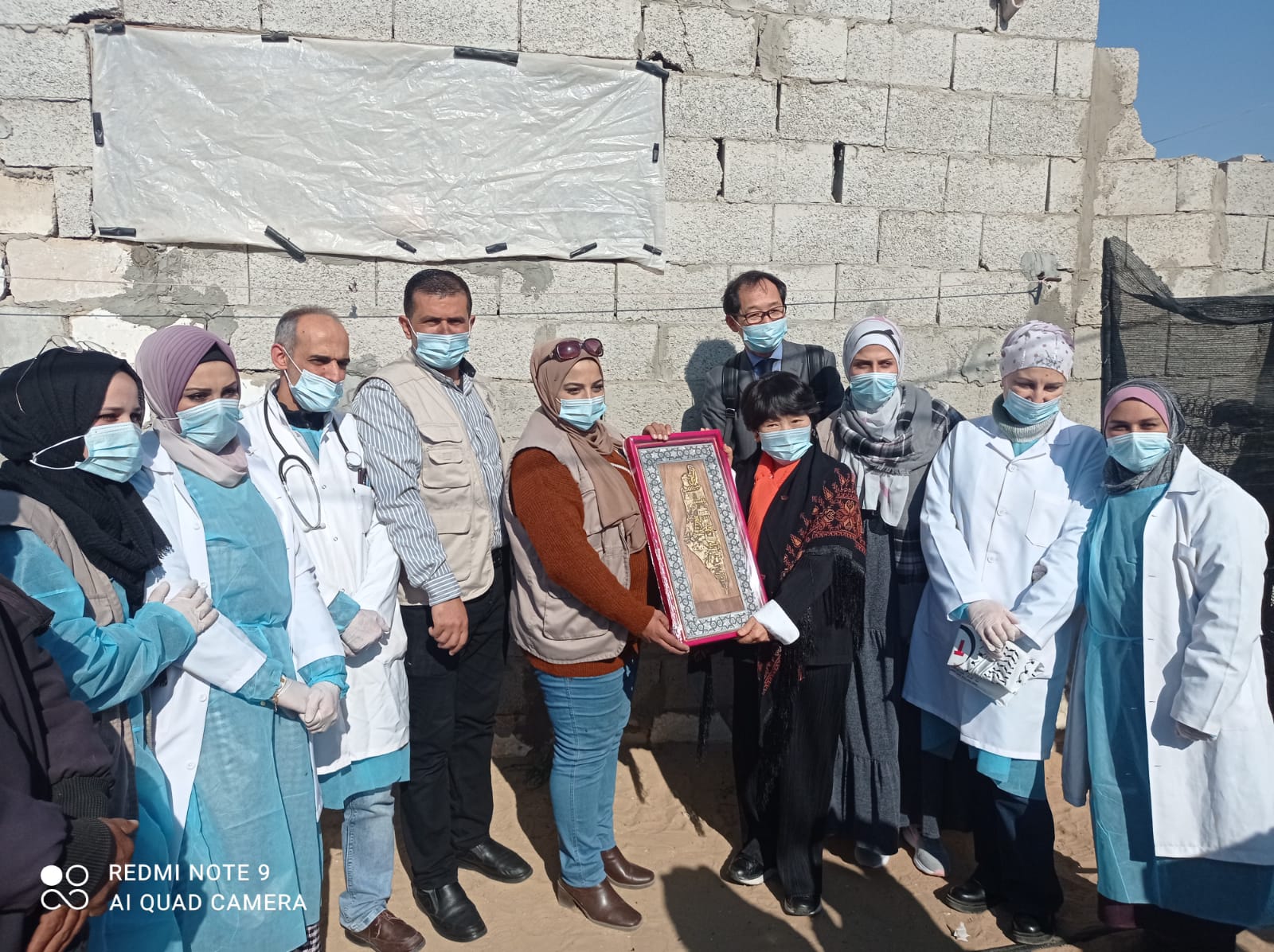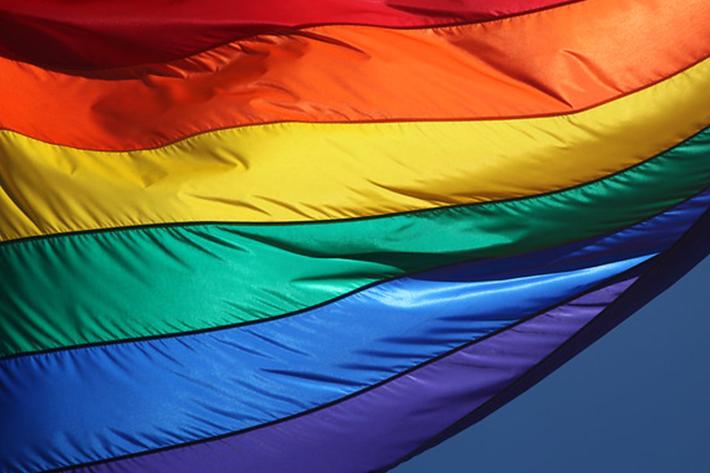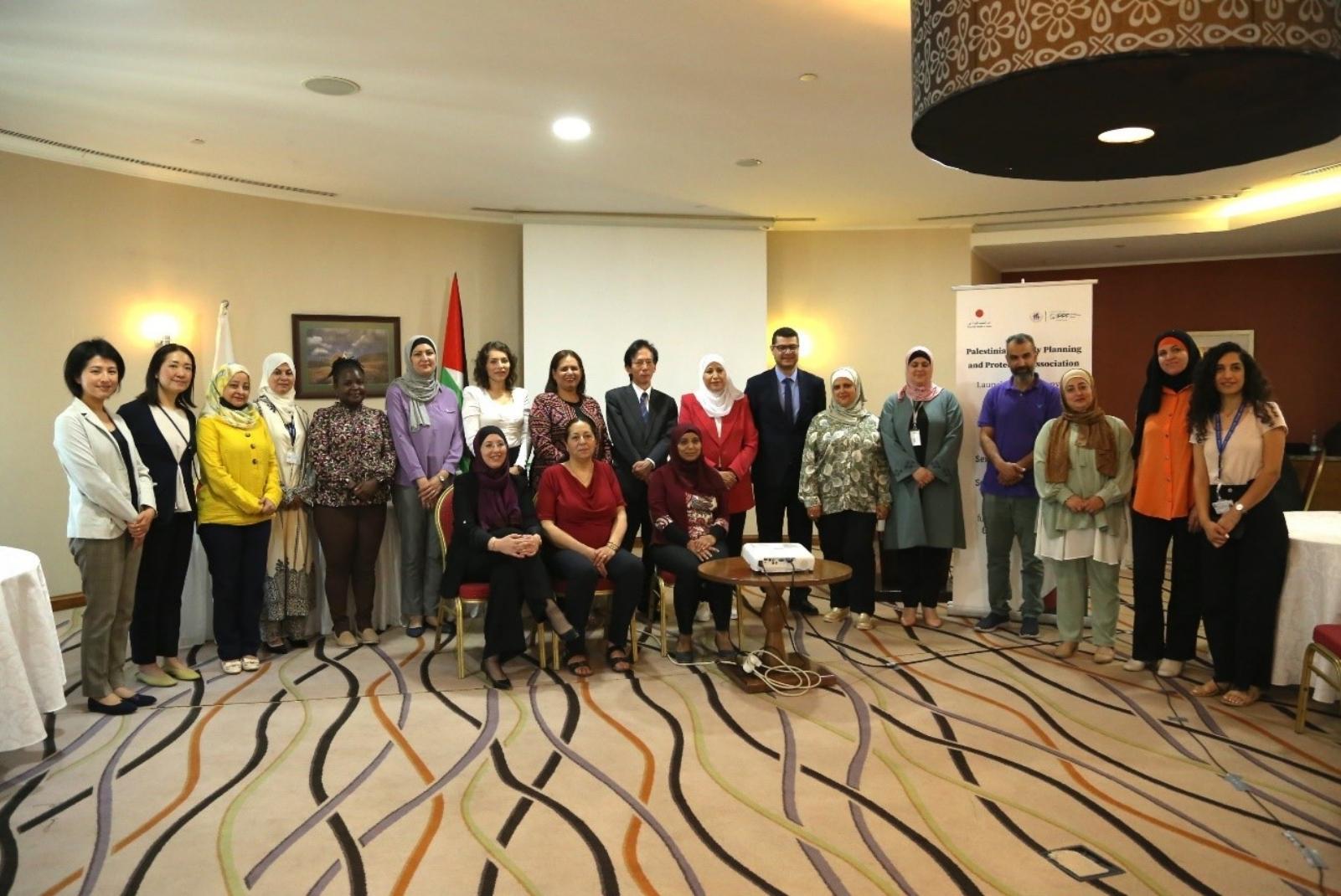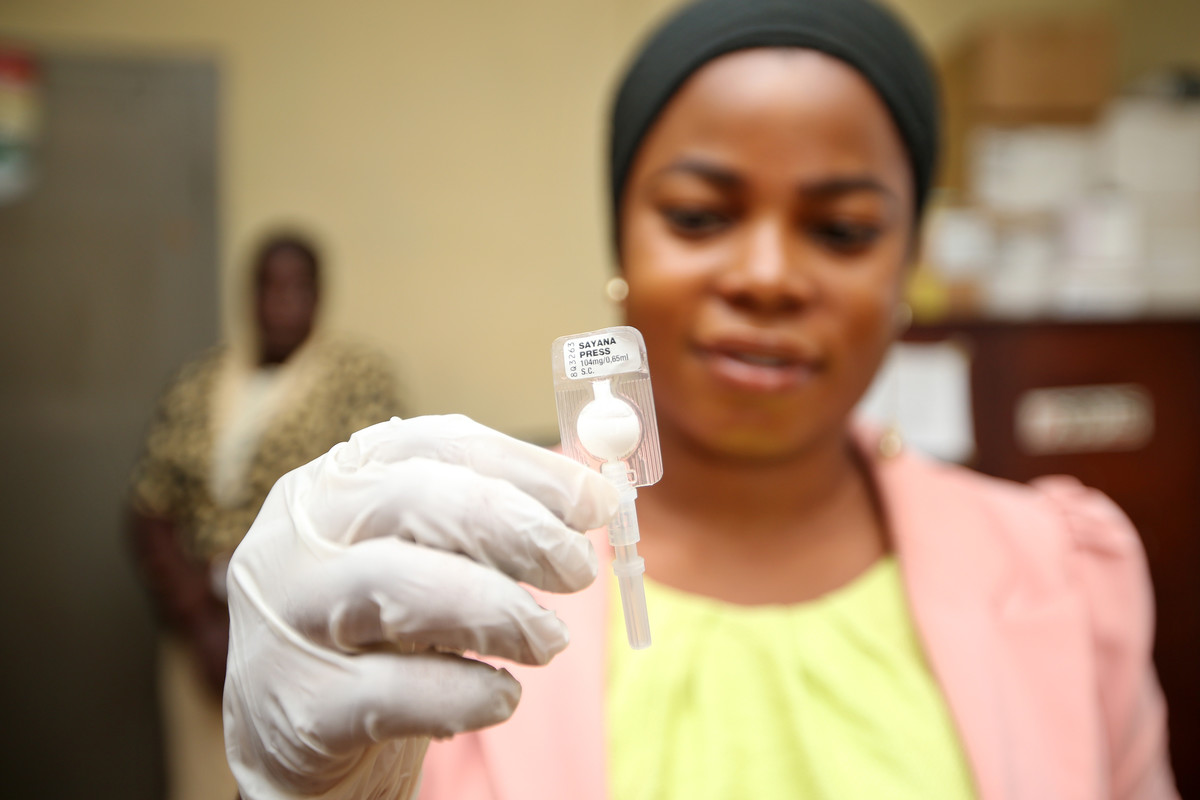
Spotlight
A selection of news from across the Federation

IPPF Statement on the 68th session of the Commission on the Status of Women (CSW)
IPPF welcomes the agreed conclusions of the 68th session of the Commission on the Status of Women (CSW), on the theme of “Accelerating the achievement of gender equality and the empowerment of all women and girls by addressing poverty and strengthening institutions and financing with a gender perspective”. IPPF actively engaged in the process by providing technical inputs to Member States, raising awareness about the interlinkages between SRHR, poverty, gender equality and the empowerment and human rights of all women and girls.
Filter our news by:


| 27 February 2024
Government of Japan awards IPPF $1.9 million to support women and girls affected by natural disasters and conflicts around the world
With support from the Government of Japan, International Planned Parenthood Federation’s (IPPF) Member Associations in five countries, namely Afghanistan, Palestine, Sudan, Ukraine and Yemen, will provide urgent sexual and reproductive health (SRH) services to communities affected by natural disasters and conflict situations. These IPPF Member Associations will: Provide sexual and reproductive health (SRH) and maternal and child health services for women and girls and marginalized communities in six remote and flood affected provinces in Afghanistan; Provide urgent sexual and reproductive health services to communities affected by the escalating violence in Palestine; Improve accessibility of services and community sustainability to decrease sexual and reproductive health-related mortality and morbidity of women and girls in three States with high internally-displaced populations in Sudan; Restore health facilities and access to maternal health services in conflict affected areas for populations affected by the destruction of the Kakhovka Dam in Ukraine; Provide critical sexual, reproductive and maternal health care to internally displaced people and local communities in Yemen. This vital funding from Japan will help with provision of badly needed but currently missing health services, especially for women, so that they can live with dignity and free from unwanted pregnancies, death of themselves and their newborns, and reproductive ill-health. It will allow us to provide essential and quality SRH and maternal and child health services in the communities, prevent and manage the consequences of sexual and gender-based violence, including the clinical management of rape, equip community-based midwives with skills to provide high quality obstetric and neonatal services and strengthen health information systems to collect high quality data to respond to the needs and priorities of women and girls’ health. IPPF Director General, Dr Alvaro Bemejo, said, "I offer heartfelt thanks to the Government of Japan for their unparalleled generosity to enable IPPF to respond to the needs of women and girls caught up in crises around the world. This generosity will allow IPPF and our local partners to provide a critical lifeline to the growing number of people in desperate need of humanitarian assistance." By the end of December 2024, IPPF, through our local partners in the five countries, will aim to deliver health services and information to at least 239,000 people in total. For further information, please contact Yuri Taniguchi, IPPF London Office, at [email protected]. Photo Credits: IPPF/Hannah Maule-ffinch/Sudan

| 07 March 2023
Japanese MP and Ambassador to Palestine visit IPPF Member Association in Gaza
On 17 January 2023, Japanese House of Representatives member Dr Toshiko Abe and Ambassador Yoichi Nakashima, Ambassador of Japan to Palestine and Representative of Japan to Palestine, visited the activity sites of the project "To improve human security in Palestine: bringing life-saving sexual and reproductive health services to those who need them most", which is being implemented by IPPF’s Member Association in Palestine, the Palestinian Family Planning and Protection Association (PFPPA) with support from the Government of Japan. They visited al Namsawi Neighbourhood in Khan Younis, a particularly marginalised area in northern Gaza, where health services are working very hard to reach for the local population. Dr Abe observed a medical campaign run by a PFPPA team together with staff of the UN Relief and Works Agency for Palestinian Refugees (UNRWA). The medical team consisting of a gynecologist, a pediatrician, a nurse, a social worker and volunteers, provides services such as treatment of sexually transmitted infections treatment, anemia, sexual abuse and harmful sexual practices, attempted unsafe abortion, GBV screening and counselling to the target population. PFPPA was established in Jerusalem in 1964, and is an independent, non-profit, and non-governmental association working in both Gaza and West Bank. PFPPA focuses on the provision of comprehensive and diverse sexual and reproductive health, including that related to SGBV. Their focus is on women and girls, the vast majority being served within a humanitarian context. The project will continue its activities in Gaza and the West Bank (Halful, Bethlehem and Ramallah) until the end of August 2023. More information about the project can be found here. More information on PFPPA can be found here.

| 18 August 2022
Ugandan LGBTQI+ organization banned by government
On 3 August 2022, the Ugandan National Bureau for Non-Governmental Organizations unfairly halted the activities of Sexual Minorities Uganda (SMUG) – a prominent lesbian, gay, bisexual, transgender, and queer (LGBTQI+) rights organization – for failing to meet the bureau's registration requirements. SMUG has provided sexuality education and advocated for LGBTQI+ healthcare since 2004 and is well-known for providing services and guidance to the LGBTQI+ community in Uganda. The organization also contributes to Uganda's health goals, including the country's HIV/AIDS strategy, which includes the provision of healthcare to vulnerable and marginalized populations. Although SMUG applied to the Uganda Registration Services Bureau (URSB) in 2012, the URSB declined the organization's request on the grounds that SMUG was "operating illegally", a position the organization petitioned with no positive response. In a clear case of harassment and restrictions against Ugandan rights groups working on LGBTQI+ rights, the URSB further asserted that registering SMUG's name would be difficult, calling it "undesirable and un-registrable". In response to the ban the Africa Regional Director for the International Planned Parenthood Federation (IPPF) urged the Ugandan government to review its decision to suspend SMUG and to work towards accommodating the organization's mandate of advancing the rights of the LGBTQI+ community in Uganda. Marie-Evelynne-Petrus-Barry said: "As a global human rights organization and the world's largest sexual and reproductive healthcare provider, the International Planned Parenthood Federation upholds the rights of all people, regardless of their sexual orientation. "The Ugandan government's ban of SMUG has created huge anxiety among health service providers, human rights defenders, and members of the LGBTQI+ community, who risk their lives daily so that LGBTQI+ people can access healthcare and information just as any other person would. "We ask the Ugandan government to urgently reconsider its decision to suspend SMUG and to put an end to laws and policies that criminalize, target and endanger members of the LGBTQI+ community and the organizations that advocate for their rights." Petrus-Barry added: "IPPF works to ensure that people with diverse sexual orientation, gender identity and/or expression, and sex characteristics (SOGIESC) – including lesbian, gay, bisexual, trans, and intersex people have access to the full set of human rights enshrined in international human rights laws. IPPF is willing to work with the Ugandan government and other stakeholders to ensure that all Ugandan people can access these rights without restraint." For media enquiries, please contact Mahmoud Garga, Lead Specialist – Strategic Communication, Media Relations and Digital Campaigning, IPPF Africa Regional Office (IPPFARO) on [email protected] or +254 704 626 920 ABOUT IPPF AFRICA REGION (IPPFAR) The International Planned Parenthood Federation Africa Region (IPPFAR) is one of the leading sexual and reproductive health (SRH) service delivery organizations in Africa and a leading sexual and reproductive health and rights (SRHR) advocacy voice in the region. Headquartered in Nairobi, Kenya, the overarching goal of IPPFAR is to increase access to SRHR services to the most vulnerable youth, men and women, in sub-Saharan Africa. Supported by thousands of volunteers, IPPFAR tackles the continent's growing SRHR challenges through a network of Member Associations (MAs) in 40 countries. We do this by developing our MAs into efficient entities with the capacity to deliver and sustain high-quality, youth-focused and gender-sensitive services. We work with Governments, the African Union, Regional Economic Commissions, the Pan-African Parliament, and United Nations bodies, among others, to expand political and financial commitments to sexual and reproductive health and rights in Africa. Learn more about the IPPF Africa Region on their website or follow them on Facebook, Twitter, Instagram and YouTube.

| 10 June 2022
Palestine set to receive $600,000 from Japan to support human security and sexual and reproductive healthcare
On 8 June 2022 in Ramallah, Palestine, there was the inauguration of the project “Improving Human Security in Palestine Through Life-saving Sexual and Reproductive Health (SRH) Services for People Most in Need," funded by the Government of Japan and implemented by the Palestinian Family Planning and Protection Association, which is IPPF’s Member Association in Palestine. Recent studies indicate an increase in the number of cases of gender-based violence in Palestine, which requires rapid and timely interventions in terms of psychological and social support, medical services, women and child health services, and sexual and reproductive health services for survivors. This project will seek to address these unmet needs, by providing quality clinic-based SRHR services for women, youth and vulnerable communities in Gaza and the West Bank. It will also expand access to high-quality, life-saving sexual and reproductive health services to communities. Mr. Masayuki Magoshi, Ambassador of Japan for Palestinian Affairs, said, “We believe that having to living in fear of violence and sexual abuse are core issues of universal human rights. Peace in the region will never be attainable or sustainable in the long term if we do not apply a gender lens to issues. This project is significant in terms of Japan’s continuous commitment toward Palestinian people, especially women. I would like to reaffirm our commitments in line with international solidarity to Palestine, to ensure the implementation of the targets for the 2030 Agenda on maternal, newborn and maternal health in emergencies and ensuring that women have access to comprehensive health care.” Dr. Amal Hamad, the Palestinian Minister of Women Affairs, said, “the health sector plays a major role in providing comprehensive primary health care to all members of the society, especially services which are directed to women. We are committed to the SDGs especially SDG 3 and SDG 5 in particular and we will keep working to promote for them.” Mr. Sami Natsheh, the Board of Directors President for the Palestinian Family Planning and Protection Association, said, “The project aims at enabling vulnerable and underserved Palestinian women and girls living in difficult humanitarian environments to access and promote sexual and reproductive health services and rights, including services to reduce and combat sexual and gender-based violence by increasing the provision of high quality sexual and reproductive health services.” Dr Fadoua Bakhadda, Regional Director, IPPF Arab World Regional Office, said, ”This project is like a life jacket for women in Palestine, especially those in protracted crisis areas. This funding will ensure the continued provision of essential sexual and reproductive health services, including safe delivery, pregnancy care, family planning, HIV and disease prevention, sexually transmitted infections and their treatment, quality post abortion care, and psychosocial support for survivors of gender-based violence”. Palestinian Family Planning and Protection Association (PFPPA): Established in Jerusalem in 1964, the PFPPA is an independent, non-profit and non-governmental organization registered locally and IPPF’s Member Association in Palestine. PFPPA has service delivery points, located in the West Bank Areas of Ramallah, Bethlehem, Hebron and Halhoul, in addition to one in the Gaza Strip. In cooperation with local partners PFPPA is also responsible for 4 safe spaces to provide Gender Based Violence (GBV) related services in the Jerusalem area. PFPPA is focuses specifically to provide people with diverse options of SRHR services and is the only organization (GO or NGO) that provides contraceptive implants as a FP method. PFPPA is pioneer in the Harm Reduction module for the provision of Abortion Related Services and has provided Technical Assistance and shared their experience on this module with other local like minded organizations in addition to other IPPF Member Association’s as well. International Planned Parenthood Federation (IPPF) Arab World Office: IPPF is a global healthcare provider and a leading advocate of sexual and reproductive health and rights (SRHR) for all. Led by a courageous and determined group of women, IPPF was founded in 1952. Today, we are a movement of over 120 autonomous member associations and 23 collaborative partners with a presence in 146 countries. Established in 1971 the IPPF Arab World Region (IPPF AWR) is one of IPPF’s six regional offices. Based in Tunis, it is the leading Sexual and Reproductive Health (SRH) service delivery organization in the North Africa and the Middle East, and the leading Sexual and Reproductive Health and Rights (SRHR) advocacy voice in the region. For further information, or to arrange an interview with PFPPA’s Executive Director, Ms. Ammal Awadallah, please contact Ms. Abeer Dahbour, Communications Officer, PFPPA at [email protected]

| 08 May 2017
Sayana efforts will help widen contraceptive choice for world’s poorest and neglected women says IPPF
Expanding contraceptive choices offers the potential to put power into women’s hands said the International Planned Parenthood Federation (IPPF) in reaction to the Sayana Press announcement by Pfizer BD, and the Bill and Melinda Gates Foundation, and CIFF today. IPPF is already playing a major role in the introduction of Sayana Press to increase access to the world’s most poorest and underserved women and girls. Sayana Press is offered as part of the contraceptive mix by IPPF’s Member Associations in Uganda, Nigeria, Burkina Faso and Senegal. They are doing this by providing Sayana Press at our extensive network of clinics, and by training community volunteers and government staff to give women Sayana Press in their own communities. Tewodros Melesse, Director General IPPF said; “This announcement is a great opportunity to enable women and girls who are often left behind because they are poor, unable to make decisions because of their partners, too far from a clinic or disabled to access contraception. Sayana Press has the potential to reach those who have never been able to access family planning before. We have seen that Sayana Press is popular with women in remote communities who can’t easily get to a clinic or drug shop. We are keen to see countries move towards community based distribution and ultimately, self-injections. All efforts must truly reach the last mile. Enabling women to administer in their own time and wherever they are is the only way to put power truly into women’s hands. It is a great step in helping to tackle the needs of the most poorest or neglected women and girls. But like any contraceptive, it must be offered as part of a broader mix of methods available and not favored more than others. Choice means every women and girl has the right to choose about their contraception wherever and whoever they are.” IPPF launched its annual global I Decide Campaign on family planning today. IPPF is fighting for a world where women everywhere can say "I decide". Support our call for universal access to contraception! Add your voice

| 20 July 2016
End gender based violence and HIV to ensure equity
18 July, Durban: Gender Based Violence (GBV) must be recognised and addressed if we are to end HIV and AIDS urged the International Planned Parenthood Federation (IPPF) and the United Nations Entity for Gender Equality and the Empowerment of Women (UN Women) at a panel during the International AIDS Conference Monday. The impact of HIV among women and girls in all their diversity is significant and alarming. Women’s greater physical vulnerability to HIV is compounded by social norms, gender inequalities, poverty and violence. Women living with HIV are also more likely to face stigmatisation, infertility, and even abuse and abandonment, contributing to their disempowerment. In East and Southern Africa, the risk of HIV among women who have experienced violence maybe three times higher In Uganda and South Africa studies found women who experienced intimate partner violence were 50 per cent more likely to have HIV than women who had not experienced violence. In many countries in Africa, getting married is among the ‘riskiest’ behaviour for women, where they may be exposed to unprotected sex with a husband who has multiple sexual partners, and to underlying power dynamics between men and women that prevent women from accessing condoms and then insisting on their use. Julia Omondi, a 24 year old advocate from Family Health Options Kenya (FHOK) highlighted the most common root causes of gender based violence and HIV, ‘I work with a group of 50 young girls like myself, called the 3E advocates to prevent girls from child marriage; support girls who are living with HIV to understand their rights, make parents and communities aware of the laws that protect girls from child marriage. We need to raise our voices to stop child marriage and turn the tide against HIV’. “Empowerment + Engagement = Equality” is a joint project supported by UN Women and IPPF implemented in Kenya, Malawi and Uganda to address HIV vulnerability among adolescent girls and young women by engaging and empowering them. Traditional leaders like the senior chief Theresa Kachindamoto from Malawi spoke of her role to change harmful gender related practices, she said, ‘Chiefs as custodians of culture should be at the forefront to end cultural practices that negatively affect people’s health like sexual cleansing (Fisi), chief blanket. My village is now a model for others and my fellow chiefs come to learn about the change I have brought to Dedtza district in Malawi.’ Nazneen Damji, Policy Advisor- gender equality, health and HIV/AIDS at UN Women, highlighted the recognition by global leaders on the importance of addressing GBV and HIV. “Violence, and the fear of violence, can play a major role in women’s reluctance to know her HIV status and seek care. Fortunately, the Political Declaration on HIV/AIDS adopted in June at the UN General Assembly and the Resolution on women, the girl child and HIV adopted at the 60th Session of the Commission on the Status of Women both call on governments to intensify efforts to end all forms of violence against women and girls, including harmful practices that contribute to the spread of HIV amongst women and girls” ‘Civil society organisations like IPPF play an important part in holding governments accountable. We shouldn’t underestimate our role as advocates to inform national, regional and global policies. If we are to address the dual epidemics of GBV and HIV we need to have progressive polices where perpetrators can be brought to justice and laws and policies uphold gender equality’ said Zelda Nhlabatsi, the executive director of Family Life Association of Swaziland (FLAS). The session was sponsored by IPPF Africa Region, UN Women and the Ford Foundation.













